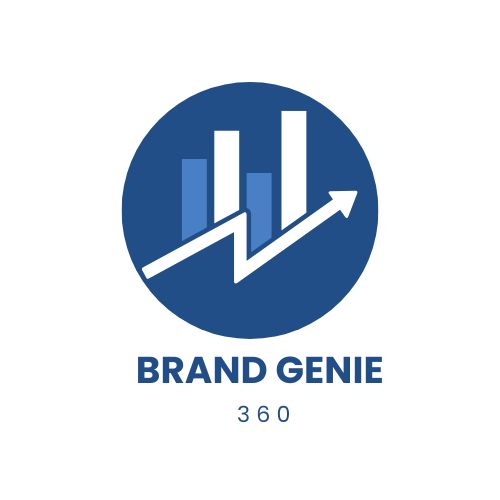Google Search Demystified: The Hidden Algorithms Powering Your Queries
Have you ever considered how Google provides precise search results in mere moments? The underlying process of a straightforward search is remarkably intricate, encompassing sophisticated algorithms, crawling, indexing, and ranking systems. In this article, we will explore in detail the mechanics of Google searches and discuss strategies for optimizing your content to enhance its visibility.
Comprehending the Search Process
Google handles billions of searches daily, guaranteeing that users receive pertinent results almost immediately. This comprehensive process can be categorized into five key stages: Crawling, Indexing, Ranking, Query Processing, and Displaying Results.
1. Crawling: Uncovering New Web Pages
The initial phase in Google’s process of locating and processing content is known as crawling. Google employs automated programs referred to as Googlebots (or web crawlers) to navigate the internet, identifying both new and updated content. These bots traverse websites by following hyperlinks from one page to another, collecting information from a variety of sources, including sitemaps and publicly accessible pages.
How Google Conducts Crawling:
- Link Following: Googlebots commence their journey from established pages and pursue links to uncover new content.
- Sitemaps: Webmasters provide XML sitemaps to Google Search Console, facilitating the discovery of significant pages by Googlebots.
- Direct Discovery: Google may also identify URLs from diverse online platforms, such as social media and databases.
Crawling is a crucial process; without it, a webpage cannot be considered for inclusion in search results.
2. Indexing: Structuring Information for Search
Following the crawling process, Google organizes and stores the gathered information in an extensive database known as the Google Index. This index functions similarly to a vast library, categorizing and organizing content based on various characteristics, including keywords, meta descriptions, images, and structured data.
Factors Affecting Indexing:
- Content Quality: Content that is high-quality, unique, and valuable is more likely to be indexed.
- Mobile Compatibility: Google emphasizes mobile-first indexing, which means that mobile-responsive pages receive higher rankings.
- Schema Markup: The use of structured data enhances Google’s understanding of content, thereby improving indexing accuracy.
3. Ranking: Identifying the Most Relevant Results
When a user submits a query, Google’s search algorithms examine the index to rank the most pertinent results. The ranking process considers over 200 factors, including:
Key Factors Influencing Ranking:
- Relevance: The degree to which the content aligns with the user’s search intent.
- Keywords: The occurrence and positioning of keywords within the content, title tags, and meta descriptions.
- Page Authority: The reliability and trustworthiness of a webpage, which is affected by backlinks and domain authority.
- User Experience (UX): Websites that load quickly, are secure, and are optimized for mobile devices tend to achieve higher rankings.
- Freshness: Content that is new and frequently updated is often given priority.
Google’s ranking algorithm employs artificial intelligence (AI) and machine learning to produce highly tailored results that align with the intent of each searcher.
4. Query Processing: Aligning Searches with Results
Prior to presenting results, Google analyzes the user’s query to discern their specific needs. This process involves examining search intent, synonyms, and natural language.
Google’s Categories of Search Intent:
- Informational: Users seeking knowledge (e.g., “how Google search operates”).
- Navigational: Users looking for a particular website or page (e.g., “Google Search Console login”).
- Transactional: Users with the intention to make a purchase (e.g., “top SEO tools for small businesses”).
- Local: Users searching for services in their vicinity (e.g., “digital marketing agency near me”).
Google’s AI-driven algorithms ensure that search intent is accurately understood, facilitating the delivery of the most pertinent results.
5. Displaying Results: SERP (Search Engine Results Page)
Once the most relevant results are ranked, Google displays them on the Search Engine Results Page (SERP). The SERP comprises:
- Organic Search Results: Web pages ranked according to relevance and SEO practices.
- Paid Advertisements (Google Ads): Sponsored listings that appear at the top or bottom of the page.
- Featured Snippets: Direct responses to queries, prominently displayed at the top.
- Knowledge Panels: Informative boxes that offer quick insights.
- People Also Ask (PAA): Related questions that may interest users.
The features of the SERP are designed to improve user experience and provide answers as swiftly as possible.
6. Ongoing Updates and Algorithm Modifications by Google
Google regularly modifies its search algorithms to enhance precision and mitigate the ranking of spammy, low-quality content. Significant updates include:
- Google Core Updates: Comprehensive alterations to ranking algorithms that occur several times each year.
- Page Experience Updates: Elements such as Core Web Vitals, mobile compatibility, and security play a role in determining rankings.
- Helpful Content Updates: Google emphasizes content that delivers genuine value to users.
It is essential for businesses and SEO professionals to remain aware of these updates to sustain or enhance their search rankings.
Concluding Remarks: The Importance of Understanding Google Search
Google Search operates as a complex system aimed at facilitating seamless and efficient information retrieval. By comprehending its mechanisms, businesses and website owners can optimize their content to achieve higher rankings and increased visibility.
Key Insights:
Google employs advanced bots to crawl and index billions of web pages.
Ranking is influenced by various factors, including content relevance, user experience, and page authority.
SERP features such as featured snippets and knowledge panels improve the search experience.
Ongoing algorithm modifications necessitate that businesses keep abreast of SEO best practices.

